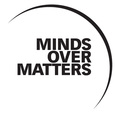There's (Not) An App for That: Solving the Legal Profession's Mental Health Problem
Because these tools actually can make struggles worse, their role should be secondary.
October 31, 2019 at 11:04 AM
7 minute read
 Image: Shutterstock.
Image: Shutterstock.
 I'll just come out and say it and likely annoy countless tech evangelists and some well-meaning law firm leaders at the same time: Apps aren't the way to solve the legal profession's mental health and addiction problems, despite their widespread availability.
I'll just come out and say it and likely annoy countless tech evangelists and some well-meaning law firm leaders at the same time: Apps aren't the way to solve the legal profession's mental health and addiction problems, despite their widespread availability.
Currently, apps are out there for managing anxiety, coping with depression, meditating, quitting drinking, getting more sleep, building resilience and more. Do these products have any role to play, and can they be useful tools? Yes and yes. But that role should be an unambiguously secondary or tertiary one, and tools deployed without well-guided purpose can actually make a problem worse. I'll come back to that last point.
First, for background and context, it's clear that, as 2019 enters the home stretch, a focus on mental health has been mainstreamed in the legal profession. This is remarkable, exciting and overdue. The signatory list for the ABA Well-Being Pledge now stands at 150 and climbing, lawyer conferences and law school curricula are increasingly making space for discussion of mental health, and employers are identifying mental health and well-being as clear organizational priorities as they budget for 2020.
And in the language of tech, we've moved well beyond the early-adopter phase. This trend in the legal profession mirrors, but to a lesser extent, the broader trends among employers nationally and globally. In a recent study, it was shown that 80% of employers claimed that they are intending to increase their health and wellness budgets this year, which is more than double compared with 2009.
Notably, the researchers found that employers are steadily increasing the use of digital technology for engaging employees in health and well-being programs and that the proportion of employers using health-related mobile apps increased by 46% since 2016.
While we don't have corresponding research on the legal profession specifically, I and other colleagues have observed a similar, growing emphasis on tech and app-based solutions for managing stress, coping with mental health problems and generally improving one's well-being in the legal profession.
On the one hand, I fully understand why lawyers and law firms are drawn to tech solutions for improving mental health and supporting well-being. Apps can be useful, convenient and cost-effective. They are plentiful in the marketplace, scalable, and offer the bonus, albeit cosmetic, appeal of making the organization look at least current, if not cutting-edge and sophisticated.
On the other hand, they may not be as effective as their makers would have you believe. They may also be an especially bad fit for the unique challenges faced by lawyers and law firm staff.
In a recent study of available mental health apps, researchers found that 64% of mental health apps claimed efficacy, although only 14% included any evidence to support those claims. For example, for apps designated "clinically relevant for depression, 38% of app store descriptions included wording related to claims of effectiveness, whereas only 2.6% provided evidence to substantiate such claims."
For a profession composed of people trained to evaluate and weigh evidence, the weakness of those figures should be startling. Furthermore, other recent studies have shown the effectiveness of mental health apps to be quite mixed, or noted that the "number of apps making unsupported claims combined with the number of apps offering questionable content warrants a cautious approach by both patients and clinicians in selecting safe and effective ones."
Moving beyond the lack of empirical evidence for their efficacy, what concerns me more about app-based mental health solutions is that they are asking us to become further entwined with and more dependent upon the very things that are frequently driving or exacerbating our mental health problems and lack of well-being: our phones. There is ample evidence that our use of and connection to our devices is having a deleterious impact on mental health, which makes turning to those devices for a solution an especially odd and questionable choice.
To be clear, there are instances where apps and technology can be useful in our efforts to improve mental health and well-being. Guiding us through a meditation session or connecting us to a live human being on the other end (known as telehealth) are just two examples. To the extent that telehealth, specifically, can provide a conduit to accessing care for people who would otherwise not be able to meet with a therapist or medical professional in person, we should embrace its potential. But again, these are qualified, limited circumstances—not wholesale, broad-based or frontline solutions.
Especially in the legal profession, where isolation and loneliness are already profound, endemic problems, employers should be more thoughtful about how they are attempting to support the mental health of their people. Lawyers do not need additional incentives to spend increasing time with their phones. They just don't.
What they do need is more time and encouragement to connect with other human beings, whether they are co-workers, colleagues, family, friends or therapists. As such, I will always advocate for solutions that foster connection with human beings first, when possible, and rely on technology only as an adjunct support or ancillary stopgap.
 As I mentioned earlier, tools deployed without a well-guided purpose actually can make a problem worse, and I fear that employers who are simply throwing apps at their people—and thereby implicitly encouraging them to spend more time with their devices—are doing just that.
As I mentioned earlier, tools deployed without a well-guided purpose actually can make a problem worse, and I fear that employers who are simply throwing apps at their people—and thereby implicitly encouraging them to spend more time with their devices—are doing just that.
Not to go all Sun Tzu on you, but it's worth noting that in "The Art of War" he wrote that "tactics without strategy is the noise before defeat." Keeping that in mind, I encourage all legal employers to be thinking about what their goals around mental health really are and then be working to develop a thoughtful and well-informed roadmap for getting there, rather than reflexively turning to the off-the-shelf tech solution that is being marketed to you or that you've heard other firms are using.
Think about it. If your car was flashing warning lights about a possible engine malfunction, you wouldn't dump a box of pliers and wrenches on it, close the hood and hope for the best simply because Craftsman has convinced you they make a solid product and all your neighbors seem to use them.
What you would do—assuming you don't like rolling the dice every time you hop on the freeway—is have the problem assessed, identify the parts that may need to be replaced and then utilize an experienced mechanic to perform the work. In the context of some law firms or other legal employers, that will sometimes mean some pretty basic fixes, perhaps like replacing an old battery. At many other organizations, that may mean rebuilding the entire engine, part by part.
Tortured analogies aside, I think and hope you get my point. If you don't, there's probably an app for that.
Patrick Krill is the founder of Krill Strategies, a behavioral health consulting firm focused exclusively on the legal industry. Go to www.prkrill.com for more information. He is also a member of Law.com's Minds Over Matters advisory board.
This content has been archived. It is available through our partners, LexisNexis® and Bloomberg Law.
To view this content, please continue to their sites.
Not a Lexis Subscriber?
Subscribe Now
Not a Bloomberg Law Subscriber?
Subscribe Now
NOT FOR REPRINT
© 2025 ALM Global, LLC, All Rights Reserved. Request academic re-use from www.copyright.com. All other uses, submit a request to [email protected]. For more information visit Asset & Logo Licensing.
You Might Like
View All
Empowering Your Lawyers: A Marketing Team’s Guide to Achieving Goals and Fostering Lawyer Satisfaction
9 minute read
Change Is Coming in the Trump Era. For Big Law, Change Is Already Here
6 minute read

'If the Job Is Better, You Get Better': Chief District Judge Discusses Overcoming Negative Perceptions During Q&A
Trending Stories
- 1Critical Mass With Law.com's Amanda Bronstad: 700+ Residents Near Ohio Derailment File New Suit, Is the FAA to Blame For Last Month's Air Disasters?
- 2Law Journal Column on Marital Residence Sales in Pending Divorces Puts 'Misplaced' Reliance on Two Cases
- 3A Message to the Community: Meeting the Moment in 2025
- 4Ex-Prosecutor Denies on Witness Stand That She Tried to Protect Ahmaud Arbery's Killers
- 5Latham's Lateral Hiring Picks Up Steam, With Firm Adding Simpson Practice Head, Private Equity GC
Who Got The Work
J. Brugh Lower of Gibbons has entered an appearance for industrial equipment supplier Devco Corporation in a pending trademark infringement lawsuit. The suit, accusing the defendant of selling knock-off Graco products, was filed Dec. 18 in New Jersey District Court by Rivkin Radler on behalf of Graco Inc. and Graco Minnesota. The case, assigned to U.S. District Judge Zahid N. Quraishi, is 3:24-cv-11294, Graco Inc. et al v. Devco Corporation.
Who Got The Work
Rebecca Maller-Stein and Kent A. Yalowitz of Arnold & Porter Kaye Scholer have entered their appearances for Hanaco Venture Capital and its executives, Lior Prosor and David Frankel, in a pending securities lawsuit. The action, filed on Dec. 24 in New York Southern District Court by Zell, Aron & Co. on behalf of Goldeneye Advisors, accuses the defendants of negligently and fraudulently managing the plaintiff's $1 million investment. The case, assigned to U.S. District Judge Vernon S. Broderick, is 1:24-cv-09918, Goldeneye Advisors, LLC v. Hanaco Venture Capital, Ltd. et al.
Who Got The Work
Attorneys from A&O Shearman has stepped in as defense counsel for Toronto-Dominion Bank and other defendants in a pending securities class action. The suit, filed Dec. 11 in New York Southern District Court by Bleichmar Fonti & Auld, accuses the defendants of concealing the bank's 'pervasive' deficiencies in regards to its compliance with the Bank Secrecy Act and the quality of its anti-money laundering controls. The case, assigned to U.S. District Judge Arun Subramanian, is 1:24-cv-09445, Gonzalez v. The Toronto-Dominion Bank et al.
Who Got The Work
Crown Castle International, a Pennsylvania company providing shared communications infrastructure, has turned to Luke D. Wolf of Gordon Rees Scully Mansukhani to fend off a pending breach-of-contract lawsuit. The court action, filed Nov. 25 in Michigan Eastern District Court by Hooper Hathaway PC on behalf of The Town Residences LLC, accuses Crown Castle of failing to transfer approximately $30,000 in utility payments from T-Mobile in breach of a roof-top lease and assignment agreement. The case, assigned to U.S. District Judge Susan K. Declercq, is 2:24-cv-13131, The Town Residences LLC v. T-Mobile US, Inc. et al.
Who Got The Work
Wilfred P. Coronato and Daniel M. Schwartz of McCarter & English have stepped in as defense counsel to Electrolux Home Products Inc. in a pending product liability lawsuit. The court action, filed Nov. 26 in New York Eastern District Court by Poulos Lopiccolo PC and Nagel Rice LLP on behalf of David Stern, alleges that the defendant's refrigerators’ drawers and shelving repeatedly break and fall apart within months after purchase. The case, assigned to U.S. District Judge Joan M. Azrack, is 2:24-cv-08204, Stern v. Electrolux Home Products, Inc.
Featured Firms
Law Offices of Gary Martin Hays & Associates, P.C.
(470) 294-1674
Law Offices of Mark E. Salomone
(857) 444-6468
Smith & Hassler
(713) 739-1250








